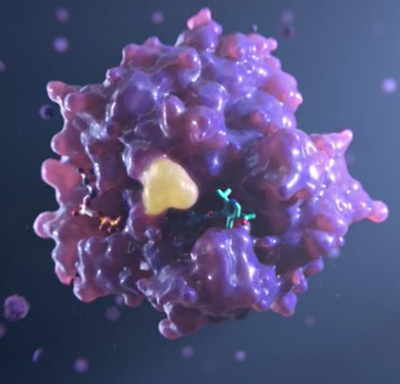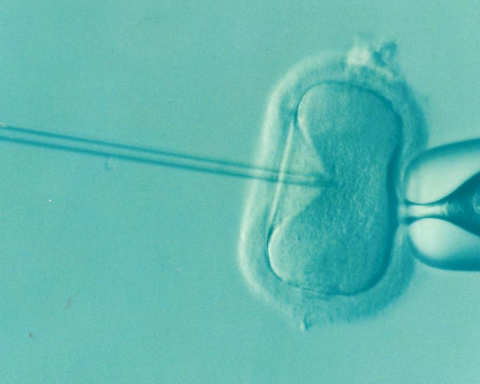Ranitidine is a pharmaceutical drug that is categorized as a histamine antagonist, also called an H2 blocker, that has popularly been used to treat acid reflux. However, this medication had recently raised controversies when the Food and Drug Administration (FDA) announced a product recall of this drug from the market due to the presence of a carcinogen, or cancer-producing, substance.
Learn more about the top reasons why Ranitidine is now considered potential harm to the body and how it could cause cancer for many people.
How Does Ranitidine Work?
Ranitidine is a drug used to treat acid reflux and related conditions, such as heartburn. Acid reflux and its associated conditions are caused by an overproduction of stomach acid that is then forced into the esophagus, resulting in pain and discomfort.
The chemical histamine occurs naturally in the human body and encourages the stomach to produce acid. This acid is important in digestion, but the stomach can produce too much acid at times, resulting in acid reflux. Ranitidine works by blocking the histamine, reducing the amount of acid in the stomach, and alleviating any painful symptoms.
However, Ranitidine is also associated with cancer. Learn why this drug is harmful by reading below.
Ranitidine May Cause Cancer
Zantac and cancer are related. Recently, Zantac, a Ranitidine brand, was recalled by the Food and Drug Administration (FDA) because of impurity built-up when stored at high temperatures.
The FDA sent letters to all manufacturers and requested to withdraw their Ranitidine products from the market. Also, consumers are advised to stop taking over-the-counter Ranitidine, both tablets and liquid. Also, patients taking prescription Ranitidine must first talk with their healthcare provider about other treatment options before stopping this medication.
Here are the details of the FDA report:
- An ongoing investigation is being carried out of a contaminant called N-Nitrosodimethylamine (NDMA) found in Ranitidine medications.
- NDMA is a human carcinogen, which is a substance that could potentially cause cancer).
- The FDA became aware of this fact in 2019 through an independent laboratory testing, wherein NDMA was found in Ranitidine.
- Sustained higher levels of NDMA exposure may increase the risk of cancer.
The FDA had also announced the proper way to dispose of Ranitidine to avoid any health and safety risks. Ongoing surveillance and monitoring are being conducted by the FDA to ensure public health.
Prolonged Used of Ranitidine May Lead to Other Unpleasant Effects
If the drug Zantac, the brand name most associated with Ranitidine, is taken continuously for a long time, it will eventually cause side effects, such as the following:
- Drowsiness
- Skin Rash
- Constipation
- Headache
- Dizziness
- Nausea
- Stomach Cramps
- Vomiting
Ranitidine Can Cause Diarrhea
When you take Ranitidine, there are also some side effects that you might experience. A common side effect of Ranitidine is diarrhea. When there is an imbalance in the stomach acid, diarrhea occurs because the stomach acids cannot kill harmful bacteria that are in your digestive tract due to their reduced levels.
Ranitidine Can Cause Eye Damage
Another side effect of Ranitidine is that it can cause damage to the eyes. Although this problem is not so common, you should always keep your eyes on the monitor if the doctor decides to check for any abnormalities that can affect your vision.
Ranitidine Can Cause Heart Problems
According to a trusted source, Ranitidine has cardiovascular effects, as shown in a study.
Here are the details of the study:
- The cardiovascular effects of this histamine antagonist drug were studied in children with congenital heart disease. They were given tolazoline, a pulmonary vasodilator (drug that dilated the blood vessels in the lungs). To prevent hemorrhage induced by tolazoline, Ranitidine was also given as prophylaxis.
- After intravenous or IV administration of 0.3 mg/kg ranitidine, the heart rate fell significantly below the normal baseline levels.
- The researchers concluded that histamine receptors are present within the systemic and pulmonary circulations in which tolazoline may mediate its effects rather than blocking alpha-adrenergic receptors. Alpha receptors are cells in the arteries stimulated by epinephrine and norepinephrine (fight and flight hormones), causing the arteries’ constriction. The effect is increased blood pressure and cardiac blood flow.
People with heart diseases can develop cardiovascular problems because this drug can be difficult on the heart. If you take Ranitidine for a long time, it will weaken your heart and make it work harder to pump blood to your body’s different parts. When this happens, there is a risk of developing cardiac arrhythmias, coronary heart diseases, and heart attacks.
Ranitidine Can Cause Kidney Problems
Kidney problems are also caused by long-term use of the drug. Once the drug is stopped, the kidneys cannot detoxify themselves, and wastes are left behind. Because of these problems, people with kidney problems might have to resort to dialysis. Other people with liver problems can develop jaundice, which can cause problems with the skin.
Conclusion
The list of side effects of Ranitidine is extensive. It can cause gastric problems and other health problems in the heart, liver, and eyes. The FDA also announced the potential risk of cancer when Ranitidine is taken for prolonged periods because of its NDMA content. So, you must do all you can to stop taking this medication and seek other treatment options.
About the Author Helga Foley
Helga Foley has been writing articles about law, and health and wellness for five years now. Helga regularly updates her blogs with informative content and submits guest posts to other websites.








